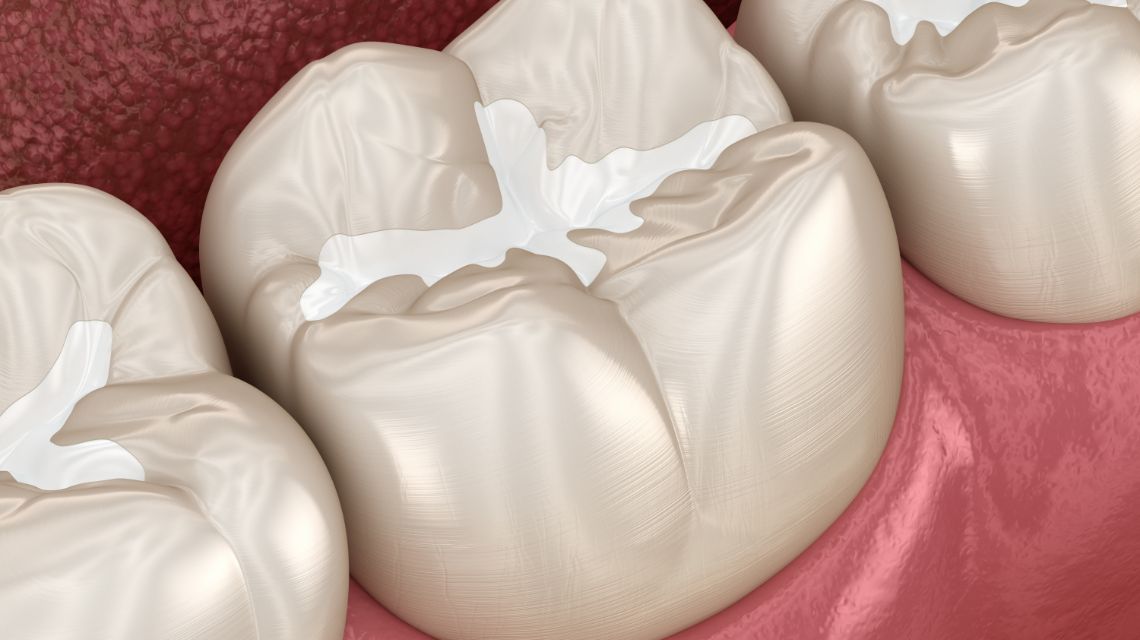
Growing up, kids do lie to their mothers about brushing their teeth. This little childish behaviour proves to be the cause of so much pain and uneasiness. Your teeth are sensitive and require regular attention in order to maintain their health.
Why are Pit and Fissure Sealants recommended?
A dental surgeon in Malda says that pit and fissure sealants are a simple part of oral care that prevents tooth decay, treats teeth problems in their early stages, and keeps teeth from decaying and in good condition. It forms a physical barrier that prevents bacteria growth and food particles accumulation in the back teeth.
Who can perform pit and fissure sealants?
Sealants are mostly required for children and teenagers. Adults who do not have decay or fillings in their molars can also benefit from sealants.
The Best Dental Surgeon Near Me claims that sealants are thin coatings painted on the chewing surfaces of teeth to prevent tooth decay. The liquid sealant quickly bonds to the depressions of the teeth, forming a protective shield over each tooth’s enamel.
It is simple, painless, and simple, requiring only a few minutes per tooth. The tooth is thoroughly cleaned, disinfected, and dried. After that, the liquid sealant is applied and allowed to harden.
How are Pit and Fissure Sealants conducted?
Before acid etching, tooth surfaces are nicely cleaned. The most important step in the sealant-application process is carefully isolating tooth surfaces to avoid saliva contamination. Sealant isolates half of the mouth at once.
The acid etching process is then carried out. Doctors Using the high-volume oral-evacuation system, thoroughly rinse all etchant from the tooth surfaces.
Afterwards, the teeth are dried until the etched enamel looks frosty or chalky.
The dental sealant material is combined and applied to the tooth surface.
Sealants are now given adequate time to cure. Before having the patient rinse with water, the surface of the tooth is wiped down with a cotton roll or an applicator.
It might take a couple of weeks to settle down and fix your teeth’ structure. It lasts for many years. They can wear out over time, and the dentist may need to add or replace sealant to ensure that decay does not begin beneath them.
The Best Dental Surgeon Near Me claims that sealants are thin coatings that are painted on the chewing surfaces of teeth to prevent tooth decay. The liquid sealant quickly bonds to the depressions of the teeth, forming a protective shield over each tooth’s enamel.
What are the benefits of Pit and Fissure Sealants?
Although brushing and flossing can remove food particles and plaque from the smooth surfaces of teeth, they cannot always reach all of the nooks and crannies of the back teeth to remove the food and plaque. Sealants keep plaque and food out of these areas, preventing tooth decay.
What are the possible complications of Pit and Fissure Sealants?
Some people are allergic to the sealant, but this is rare. A dental sealant may feel uncomfortable at first. After a few days, however, you adjust, and the sealant is no longer visible.
They are not long-lasting and must be replaced in 5 years or less. Plus, they have the ability to seal in dental decay. Sealants can seal in acids in a decayed tooth, causing more harm than good if your teeth are not properly examined. They are not suitable for everyone. They cannot be used on teeth that have dental fillings or are decayed.
Conclusion
Therefore, the effort is required if you want your smile to be bright and radiant forever. Pit and Fissure Sealants protect from tooth problems and maintain a child’s oral health. Dental Hospital in Malda is forever at your service as a companion to your happy teeth and a happy smile.
You can consult a dental doctor or visit a dental clinic in Malda. You can request an appointment at Apollo Dental, Malda. Call 1800 1020 288 to book an appointment.
• It is a protective layer mostly applied to the molars to prevent tooth decay. Because of the anatomy of the molars, the exposed surfaces of chewing teeth are not properly protected, resulting in pits, fissures, and cavities.
• On average, the price of this treatment differs from Rs. 1,960 to Rs. 3,910 per tooth.


















































